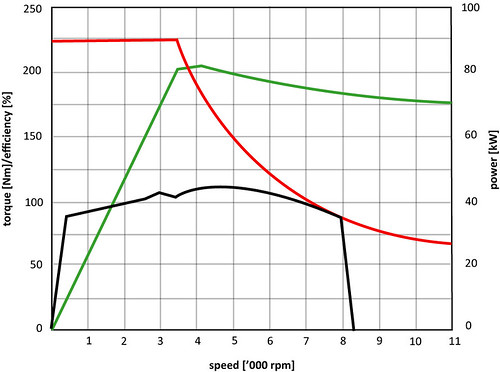Cognitive Gear (post: 1376193) wrote:I was a pretty big advocate of the hydrogen vehicle, until I began to think about the effects all of that water could have. Even if we assume that all of the existing drainage systems are sufficient in the big cities, there is still the very real, and dangerous icing problem. If you live somewhere that it snows all throughout winter, chances are that the water will either freeze when it hits the pavement, or freeze inside the tailpipe, causing all kinds of other problems.
I don't think you have a real problem here. If you are talking about an internal combustion hydrogen vehicle, the exhaust is a hot gas. Gasoline and diesel fuel are blends of various alkanes and arenes, which produce at least half as many water molecules as carbon oxides as they burn (closer to one-to-one for diesel engines), so steam is coming out of the tailpipes of the cars we're driving now. If you replaced all the cars on the road with hydrogen-only vehicles, it would roughly triple the amount of steam (in return for dropping the oxides of carbon to zero.) If this was going to be a problem, you would already be seeing that 1/3 of that problem.
You may be referring to the question about what to do with the water produced by a fuel-cell vehicle. Some want to just let it dump out of the car as you drive, which would save weight but could cause icing issues in winter (both in the car and on the road). Others say it should be kept in a tank and dumped at the filling station. (I like the Apollo solution. The astronauts just drank the stuff. Well, then they dumped it out a little while later, I guess.)
Plug-in Hybrids resolve the chicken-and-egg dilemma. Once battery technology improves a little more, we will have cars which people plug in overnight so they can burn electricity most of the time in town, only kicking in the liquid fuel for higher speeds or longer distances. Since electricity tends to be somewhat cheaper than gasoline, and the gap is expected to widen in the future, people will want to top off their batteries and save their gasoline when they can. Once enough plug-ins are on the road, filling stations will respond to that demand. Once there are enough of these, the EVs that are already in the cities will start venturing farther into the countryside and eventually replace the hybrids.
The great thing is, the electric side of the plug-in hybrid uses all the same technologies as the EV, so the hybrid is paying for the development of the EV.
Radical Dreamer (post: 1376649) wrote:While the idea of an electric car would be pretty cool, I do have a question, and I mean this seriously, because I don't know a whole lot about this sort of thing. XD That said, what would charging your electric car do to your electric bill? I'm just wondering how much cheaper it would be, if the money you would be spending on gas just started going to your electric bill instead. Again, I'm pretty uninformed on all of this, so if someone would like to clarify, that'd be fantastic. XD
Right now in the US, most EVs that are available are roughly on a par with equivalent gasoline vehicles in the fuel operation department. In other words, if you drove a Tesla, you would be paying similar amounts in electricity as the guy with a similar gasoline burning sportster was paying in gas. Some say it is a little cheaper, but they are failing to take into account that an EV is typically a little heavier than the equivalent gasoline burner, which eats up the savings.
Thing is, a lot of EVs now available are like driving a Smart, so they probably cost a lot less to fuel than a Taurus or such. But if you could buy an electric Taurus, it would be around the same.
However, the experts in this field believe that the inflation of gasoline prices is going to continue to outpace inflation of electric prices, because petroleum is growing gradually more expensive and gasoline cars don't have the luxury of burning other fuels. Ethanol does not seem to be the salvation of the gasoline engine the way things are going, although biofuel may be able to stretch diesels for a while, it has similar competing with the food supply issues. So it isn't so much of what you save now, but what drivers may be saving ten years from now or more.
Unlike your car motor, the electricity suppliers can switch fuels (however slowly) and can shift production to the cheaper plants on the fly once multiple sources are available on the grid. Wind is already cheaper than gasoline, although still more expensive than coal. Natural gas is also cheaper, on a par with coal. Nuclear has the potential to be cheaper eventually, and so does Solar (especially with hybrid solar thermal, which can 'burn' sunlight during the day and natural gas at night or in bad weather.) Even coal helps a little. As coal plants modernize, they not only get smaller carbon footprints, they squeeze more energy out of the fuel, which pays for the modernization eventually. Also, coal plants could potentially become hybrid as well, switching between coal, natural gas and even synthetic fuels produced from green electricity in sunnier or windier parts of the country.








 )
)

